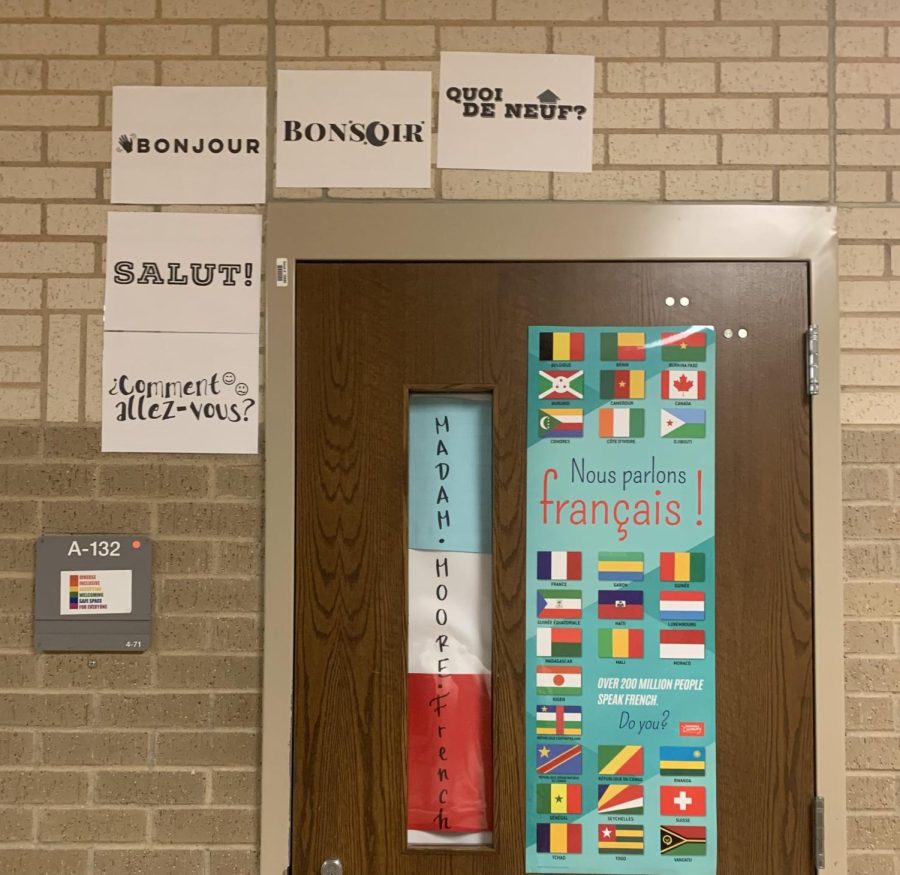Speaking Double
Only about 43 percent of the population is bilingual, meaning they can speak two languages. This ability gives them a better understanding of these cultures, more opportunities, and the chance to connect with more people.
There are multiple ways to learn and teach a language. Teaching a language can include grammar, sentence structure, and even having to gain a deeper understanding of their first language. Erica Williams, a Spanish teacher, has found multiple ways to teach students a new language.
“Initially I taught the way I was taught, which is through grammar, but in the last few years I’ve tried to use stem phrases so students can repeat them and fill in the blanks. At this point, they’re learning by hearing, it’s better to learn by ear. The best resource is being totally immersed, but with this generation, television and social media are good resources,” said Williams.
Despite many people speaking two languages, learning a second language is no easy feat. The later in life a person decides to learn, the more difficult it becomes. Ella Beason, a Freshman learning Korean and Spanish, understands the difficulty that comes with learning another language.
“To learn I’m using a lot of resources and materials. For example, I’m taking a Spanish class and also learning on Duolingo. I’m also learning Korean and that comes about with practice. I use it in a lot of different areas of my life. I think it’s super interesting to learn languages. It kind of shows you how the brain works, like how the sentences are phrased differently,” said Beason.
While some people might struggle with speaking two languages, others have been doing it for their whole lives. People who have grown up with parents who speak two languages often end up speaking both those languages too. Sophomore, Rachel Hanson, grew up speaking both Vietnamese and English.
“People are always surprised to learn I’m bilingual because a lot of bilingual kids don’t exactly look bilingual. The cultures are very different, like the way my mom runs the house is very different to how my dad does. Sometimes I’ll confuse the languages when I’m talking to my friends because I’ll forget a word in English but know it in Vietnamese,” said Hanson.
Even though it can be hard to learn a language later in life, it’s not impossible. Classes in high school and college, as well as other learning tools, have made learning languages later on more common. Vivian Moore, a French teacher, ended up learning her second language in high school and college.
“I started learning French in high school. I had a family background, and had been interested. I continued studying in college, traveled, listened to things in French, and read in French. You know, just using the resources I had. It’s a pleasure to find out and learn and experience different cultures,” said Moore.
Knowing a second language helps people gain knowledge of the culture that comes with it. Learning a language offers a way to connect with people who are a part of a different culture. Freshman, Elizabeth Nguyen, has different connections because of being able to speak English and Vietnamese.
“My parents and grandparents all speak Vietnamese, so it’s easier to communicate with them as well as other Vietnamese people too. I took ESL (English as a Second Language) for a bit and learned from TV shows. English made it easier to make friends, since not everybody speaks Vietnamese. I kind of think in two languages now, so it’s weird having to translate,” said Nguyen.
Being bilingual provides opportunities that people who only speak one language might not get. Speaking two languages is often a trait employers seek out, especially in places like Texas where there are a lot of Spanish speakers. The Spanish teacher, Ariel Bueno, knows firsthand the benefits that come with being bilingual.
“I feel like, especially in Texas, there is a need for Spanish speaking professionals because they can communicate, not just with students, but with parents. Traveling is also a great advantage because you can actually connect with people. People feel more connected to you when you can speak their native language,” said Bueno.
Being bilingual is a great skill to have, and it opens up paths not available to people who only speak one language. Whether it’s job opportunities or deeper connections to different cultures, the ability to speak two languages can be a big advantage in life.

- Grade 11 with 3 years of experience.
My name is Rebecca Rios, and I'm the Editor in Chief for Newspaper! I joined this program because I love writing,...

